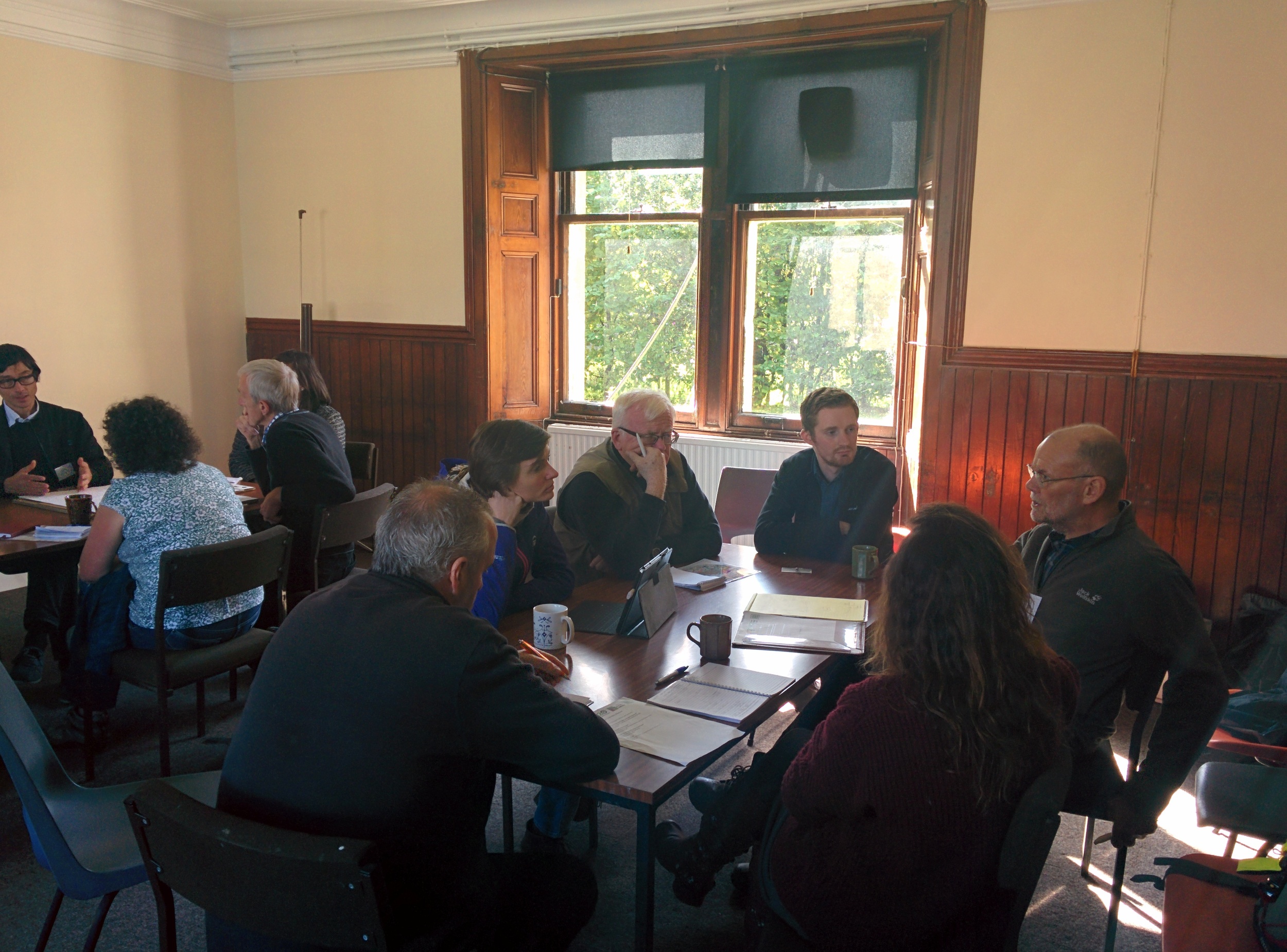A large farm in a sleepy North Lanarkshire village may not seem like the most obvious venue for an energy workshop, but the Hartwood Research Station is not a typical farm. The site is owned by the James Hutton Institute, a centre for environmental and agricultural research, and is currently the focus of an innovative energy project. Potential site developments include anaerobic digesters, wind power and geothermal heating, but more critically, the site is aiming to involve the local community in these plans. With this in mind, Scene arranged two free workshops at Hartwood Farm aimed at offering advice and support to communities interested in renewable energy. The workshops ran on the 22nd August & 26th September under the name – “Is community energy right for you?” - with the latter taking place during Community Energy Fortnight 2014.
Community Energy Fortnight (CEF) 2014 is the brain child of the UK Community Energy Coalition and aims to “explore and celebrate,” community energy projects in the UK. Running from the 13th September, it represents two weeks where citizens and communities can engage with community energy practitioners, learn from experts and visit operational projects. Initiatives such as CEF2014 are pivotal in bridging the gaps between science, policy and the public – providing a vehicle for knowledge sharing, networking and action.
Stating that the community energy agenda cannot progress without communities may seem an absurdly obvious statement, but with a target of 500MW of community and locally-owned renewable energy by 2020 and a current community component of only 30.4MW, community energy is in need of much improved public engagement. Community energy projects can provide energy security; financial benefits; lower local environmental impacts and further local autonomy & governance. Further to this, community involvement in renewable energy projects can greatly enhance the chances of the projects getting past the planning stages and into operation (Haggett et al, 2013). There are a number of constraining factors which limit community involvement in energy projects, although very evident and numerous concerns relate to a lack of knowledge, time and expert advice and support (Walker, 2008). This highlights the need for improved knowledge sharing and the provision, or donation, of expert help to groups who often cannot afford the time or money for such liaisons.
“Is community energy right for you,” was designed as a non-specialist introduction to community energy, with the chance to speak to consultants and practitioners, as well as an opportunity to meet other communities with similar interests. Providing both presentations and an informal workshop, the event brought together expertise from Scene, Local Energy Scotland, Stewart Energy and the Fintry Renewable Energy Enterprise. The event was attended by participants from all around Scotland, involving: community councils from Argyll, development trusts from Angus and civic societies from Midlothian. Attendees varied greatly in their current stage of development, from first time “fact finding,” to well-developed plans – including micro-hydro, biomass and wind schemes. The one thing that tied participants (and speakers!) together was a mutual interest and enthusiasm for community energy – a focus which the workshops aimed to sharpen, catalysing further interest and action.
Workshops allowed attendees to discuss their ideas and projects with specialist, as well as other community groups.
Event feedback has been extremely positive, with all participants stating that the workshop has provided them with useful information and the impetus to further their aims and projects within community energy. Improving awareness of community energy, and related advice and finance channels, is a critical element in enhancing community energy project uptake in the UK. Increasing the number and improving the quality of community energy events is a key way of achieving these aims, an agenda which is being admirably led by the organisations involved in the Community Energy Fortnight 2014.
What have we learned from this? More than anything that the push towards more community uptake needs to be done collaboratively by as large a group of like-minded organisations as possible. This is not a job that can simply be left to the government’s contractors alone, or left to communities themselves with an ‘if we build it they will come’ attitude. Community energy requires a great deal of time, motivation and education. We believe that running workshops like this, getting the word out, and maybe even being a bit evangelical about our subject, is absolutely what is required to truly build momentum in this sector.






